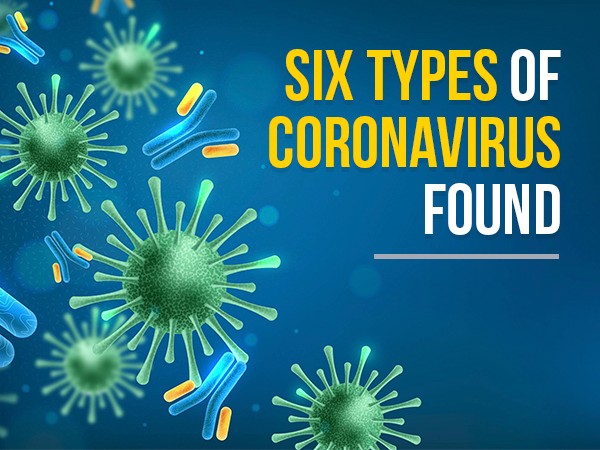Just In
- 6 hrs ago

- 6 hrs ago

- 9 hrs ago

- 10 hrs ago

Don't Miss
- Movies
 Heeramandi Screening: Vicky Kaushal, Pulkit Samrat, Sooraj Pancholi- Bollywood Hunks In Traditional Style At R
Heeramandi Screening: Vicky Kaushal, Pulkit Samrat, Sooraj Pancholi- Bollywood Hunks In Traditional Style At R - News
 Who Is Lisa Pisano, New Jersey Woman Gets Pig Kidney Transplant And Heart Pump?
Who Is Lisa Pisano, New Jersey Woman Gets Pig Kidney Transplant And Heart Pump? - Sports
 Pakistan vs New Zealand 4th T20 Live Score, Latest Updates From Lahore: Tom Blundell, Tim Robinson Open NZ Innings
Pakistan vs New Zealand 4th T20 Live Score, Latest Updates From Lahore: Tom Blundell, Tim Robinson Open NZ Innings - Finance
 Tech Mahindra Q4 Results: Cons PAT Declines 41% YoY To Rs 661 Crore; Exits FY24 In Red
Tech Mahindra Q4 Results: Cons PAT Declines 41% YoY To Rs 661 Crore; Exits FY24 In Red - Automobiles
 Royal Enfield Unveils Revolutionary Rentals & Tours Service: Check Out All Details Here
Royal Enfield Unveils Revolutionary Rentals & Tours Service: Check Out All Details Here - Technology
 Elon Musk’s X Is Launching a TV App Similar to YouTube for Watching Videos
Elon Musk’s X Is Launching a TV App Similar to YouTube for Watching Videos - Education
 AICTE introduces career portal for 3 million students, offering fully-sponsored trip to Silicon Valley
AICTE introduces career portal for 3 million students, offering fully-sponsored trip to Silicon Valley - Travel
 Escape to Kalimpong, Gangtok, and Darjeeling with IRCTC's Tour Package; Check Itinerary
Escape to Kalimpong, Gangtok, and Darjeeling with IRCTC's Tour Package; Check Itinerary
COVID-19: Six Types Of Coronavirus With Specific Symptoms
Update: A new variant of Covid-19 had been detected, which may have caused the spike in cases in London, Essex and Kent. The World Health Organization had been informed of the variant, which is unlikely to cause more serious disease than others. Over 1,000 cases with this variant have been identified in London and numbers are increasing rapidly.
Since its advent in December 2019, the Covid-19 pandemic has caused 613,355 deaths, affecting over 14,859,535 people. All around the globe, scientists and health experts are ardently working towards providing a deeper understanding of the nature of the novel coronavirus, informing the public of its development, hence creating further awareness on the on-going issue.

A recent study by a group of British scientists, which analysed the data from a widely-used COVID-19 symptom-tracking app, found that there are six distinct types of the coronavirus disease, each characterised by the different set of symptoms [1].

What Are The Six Types Of COVID-19 And Its Symptoms?
According to the study, these are the different types of coronavirus infection [2].
Type 1: Flu-like with no fever. Symptoms: Headache, loss of smell, muscle pains, cough, sore throat, chest pain, no fever.
Type 2: Flu-like with fever. Symptoms: Headache, loss of smell, cough, sore throat, hoarseness, fever, loss of appetite.
Type 3: Gastrointestinal. Symptoms: Headache, loss of smell, loss of appetite, diarrhoea, sore throat, chest pain, no cough.
Type 4: Severe level one, fatigue. Symptoms: Headache, loss of smell, cough, fever, hoarseness, chest pain, fatigue.
Type 5: Severe level two, confusion. Symptoms: Headache, loss of smell, loss of appetite, cough, fever, hoarseness, sore throat, chest pain, fatigue, confusion, muscle pain.
Type 6: Severe level three, abdominal and respiratory. Symptoms: Headache, loss of smell, loss of appetite, cough, fever, hoarseness, sore throat, chest pain, fatigue, confusion, muscle pain, shortness of breath, diarrhoea, abdominal pain.


What Does The Study Finding Mean?
Upon finding the varied ways the infection can attack the human system, the researchers pointed out that the six types also correlated with levels of severity of the infection and also with the likelihood of a patient needing help with breathing, such as oxygen or ventilator treatment [3].
The findings can help doctors assess the risk of the Covid-19 infection in affected people and likewise, treat the patient in priority. This can help improve the chances of survival of Covid-19 patients because early medical intervention can improve the symptoms and condition of the affected individual.
"If you can predict who these people are at Day Five, you have time to give them support and early interventions such as monitoring blood oxygen and sugar levels, and ensuring they are properly hydrated," said one of the researchers [4].
The researchers also added that Covid-19 patients with level 4,5 and 6 types were more likely to be admitted to hospital and more likely to need respiratory support.

How Did The COVID-19 App Help The Researchers?
The COVID Symptom Study app in the UK and U.S channelled the attention of the researchers when the data collected from the app revealed that people can experience a wide range of different effects [5].
Continuous cough, fever and loss of smell are usually highlighted as the three key symptoms of the coronavirus infection but the data gathered from around 1,600 users of the app showed otherwise, prompting the experts to look into the matter and reached the conclusion that the viral infection attacks people differently.
The news comes in amidst the reports that the Oxford COVID-19 vaccine early trial showed positive results and can help reduce disease and transmission. The vaccine, AZD1222 showed a protective immune response in hundreds of people who got the shot.
Human trials in India is set to start by August 2020.

On A Final Note…
The findings of this specific study are said to have major implications on treatment decisions during a potential second wave of coronavirus and could save the lives of thousands of people.
Stay Home. Stay Safe
-
 disorders cureIndia May See A Covid Surge In January, Next 40 Days Crucial; Here Is How To Protect Yourself From COVID-19
disorders cureIndia May See A Covid Surge In January, Next 40 Days Crucial; Here Is How To Protect Yourself From COVID-19 -
 disorders cureCOVID Can Trigger Parkinson's Disease: Study
disorders cureCOVID Can Trigger Parkinson's Disease: Study -
 disorders cureCommon COVID Symptoms In Fully Vaccinated Individuals: What You Should Know
disorders cureCommon COVID Symptoms In Fully Vaccinated Individuals: What You Should Know -
 wellnessMild COVID Linked To Life-Threatening Blood Clots, Increased Risk Of Cardiovascular Disease; Study
wellnessMild COVID Linked To Life-Threatening Blood Clots, Increased Risk Of Cardiovascular Disease; Study -
 wellnessCOVID-19 Variants In India: New COVID Variant May Pose Threat To Elderly People
wellnessCOVID-19 Variants In India: New COVID Variant May Pose Threat To Elderly People -
 basicsCovid-19 Linked To Early Onset Of Periods: What You Need To Know
basicsCovid-19 Linked To Early Onset Of Periods: What You Need To Know -
 wellnessCOVID XBB Variants Of Omicron In India: What You Should Know
wellnessCOVID XBB Variants Of Omicron In India: What You Should Know -
 disorders cureNew Omicron Subvariant BQ.1 Detected In Maharashtra: What You Should Know
disorders cureNew Omicron Subvariant BQ.1 Detected In Maharashtra: What You Should Know -
 disorders cureOmicron BF.7 In India, Risk Of Fresh Wave During Diwali: What You Should Know
disorders cureOmicron BF.7 In India, Risk Of Fresh Wave During Diwali: What You Should Know -
 womenPriyanka Chopra Speaks On Climate Change, COVID, Poverty At The UN Sustainable Development Goals 2022 Moment
womenPriyanka Chopra Speaks On Climate Change, COVID, Poverty At The UN Sustainable Development Goals 2022 Moment -
 wellnessCoronavirus Residues Might Be Causing Long COVID: New Study
wellnessCoronavirus Residues Might Be Causing Long COVID: New Study -
 art cultureRenowned Spanish Author Javier Marias Passes Away Due To Lung Infection Post COVID-19
art cultureRenowned Spanish Author Javier Marias Passes Away Due To Lung Infection Post COVID-19


 Click it and Unblock the Notifications
Click it and Unblock the Notifications



